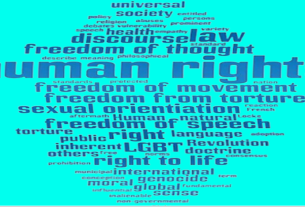(Beirut) – Drone strikes on five oil fields in the Kurdistan Region of Iraq (KRI) by unknown groups between July 14 and 16, 2025, significantly damaged the region’s energy production, Human Rights Watch said today.
The drone strikes mark a dangerous escalation in a long-running dispute between Baghdad and Erbil over the control and distribution of oil revenues. As part of this dispute, Baghdad has been withholding funds for the regional government’s public sector salaries since May. Federal Iraqi and Kurdistan regional authorities should investigate the drone strikes, prevent further attacks on energy infrastructure, and ensure timely and full payment of public sector salaries.
“Deliberate damage to oil infrastructure could cause serious ripple effects for KRI residents’ access to public services,” said Sarah Sanbar, Iraq researcher at Human Rights Watch. “Adding insult to injury, thousands of teachers, doctors, and nurses can’t pay for everyday expenses because their salaries are being held hostage to political bickering.”
The drone strikes took around 220,000 barrels per day of oil production offline, cutting total oil output in the Kurdistan region by 70 percent, The New Arab reported. No casualties were reported. While no group has claimed responsibility for the strikes, Aziz Ahmad, deputy chief of staff to the Kurdistan Regional Government’s prime minister, Masrour Barzani, blamed “criminal militias on the Iraqi government payroll.”
The Kurdistan Regional Government relies heavily on oil revenues and federal budget transfers to pay salaries and fund public services. Since 2014, Baghdad has intermittently withheld Erbil’s share of the federal budget, using payments as leverage to force concessions in negotiations over oil revenues.
On July 17, the Iraqi government approved a deal with the regional government to resume oil exports from the Kurdistan region and salary payments for public employees. On July 24, the Kurdish Finance Ministry confirmed it had received and would distribute the funds for May salaries. June and July salaries are still pending.
Baghdad withholding public sector salaries has directly affected the quality and provision of essential public services, including health care and education, Human Rights Watch said.
As a result of withheld oil-related budget transfers, the Kurdistan Regional Government has failed to pay teachers 16 monthly salaries and only partially paid 44 monthly salaries over the last decade, according to reporting by Kirkuk Now. Teachers and school administrators have frequently gone on strike to protest the nonpayment of salaries. In late 2023, nearly 60,000 teachers went on strike for six months, the longest sustained labor action by public sector workers in the Kurdistan region, leaving 700,000 students out of the classroom.
Health workers, too, have frequently gone on strike over nonpayment of salaries, limiting services to emergency care. Many doctors, facing mounting financial pressure, have turned to private practice, reducing availability in public hospitals and lowering the quality of care for patients who cannot pay for private services.
The drone strikes also threaten the KRI’s energy infrastructure and directly affect the right to electricity, Human Rights Watch said. Electricity access in the region remains inconsistent, with just 6 hours per day of national grid power in the winter and 12 to 14 hours in the summer, Omed Saeed, director of the Kurdistan Region Control Center in the Electricity Ministry, told Human Rights Watch in April.
The Khor Mor gas field, which provides feedstock for the majority of the region’s power generation, has been hit by drones at least nine times since 2023, most recently in February 2025. In April 2024, a drone strike on Khor Mor killed four workers and suspended production for nearly a week. Despite a pledge by Iraqi Prime Minister Mohammed Shia al-Sudani, the government has never published the results of any investigations or held those responsible accountable.
The Kurdistan Regional Government’s Natural Resources Ministry condemned the recent spate of drone strikes as “terrorist acts intended to damage the economic infrastructure of the Kurdistan Region and endanger the safety of civilian employees working in the energy sector.”
On July 15, Prime Minister al-Sudani ordered an investigation into the recent attacks [KA1] and vowed to hold those responsible to account.
Both federal and regional authorities have a responsibility to protect critical infrastructure and safeguard civilians. They should act in good faith to ensure fulfillment of residents’ economic, social, and cultural rights and prioritize the payment of public sector wages to ensure access to public services, Human Rights Watch said. Their prolonged failure to resolve these disputes has had a direct and devastating impact on the rights of public sector workers and those [KA2] who rely on their services.
Iraq, as a state party to the International Covenant on Economic, Social and Cultural Rights, is obligated to uphold the right to an adequate standard of living, including timely wages, health, and education.
“Baghdad and Erbil should stop using civil servants’ salaries and livelihoods as a political football in negotiations over oil,” Sanbar said.

